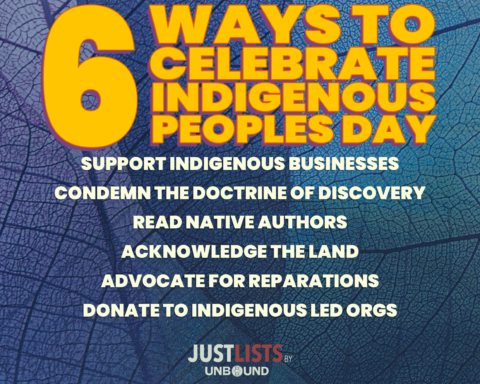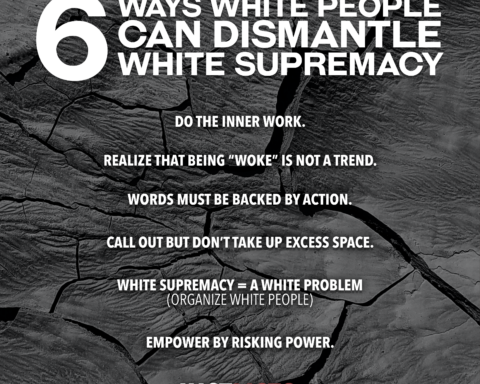Anti-racism work and training is by no means work that needs to be done in silos. But when it comes to dismantling white supremacy and racism, white people and people of color have different work to do. This means that white people need to do the work separate from their siblings of color before any type of reconciliation happens. Here are just 5 reasons why separating into race based affinity groups is important for anti-racist work.
- People of color need spaces to grieve, lament, mourn, and share their emotions in community away from white people.
White people tend to take up excess space as well as center conversation around themselves. People of color, gathering together in their own spaces, may find more freedom and trust to do the work they need to do in processing. - White people created white supremacy so white people need to do the work to dismantle it.
White supremacy is a white people’s problem and it is going to take white people’s intentional efforts to dismantle white supremacy. “But I didn’t own slaves,” is a common pushback from this logic. Yes, current white populations may not have owned slaves, but white ancestors did and this is the legacy and history white people inherit. So, white people, do the work together. - White people talking about white supremacy can re-traumatize people of color.
Having white spaces for doing the work of dismantling white supremacy is out of safety for people of color because white, honest narratives can re-traumatize our siblings of color. Being bombarded with how white people privilege from systems of oppression is not good for the soul nor is it good for someone’s trauma. So next time, if you are a white person and are uncomfortable with being separated from your siblings of color, remember that it’s more uncomfortable and traumatic for your siblings of color than it is for you to do this work. - People of color are exhausted from teaching white people about racism and white supremacy.
Again, dismantling white supremacy is tiring, but is nothing compared to what people of color are experiencing. So, in order to give our siblings of color spaces of rest, white people should create their own spaces to speak toward their emotions and doing the tiresome work of dismantling racism. - Affinity groups help us to live into the feeling of being uncomfortable.
“Why are we separated? I feel uncomfortable with this. Seems like we should be doing this work together.” “Why are we segregating?” These are often questions asked when affinity groups based on race are used to do the work of dismantling racism. Separating into racial groups may bring shame or feelings of guilt to white people as it reminds them of a time when segregation was the norm. It may also go against the “rainbow and sunshine” type of nicety and superficial reconciliation that one thinks about when doing anti-racism work. Living into this uncomfortableness is a stage in dismantling racism and white supremacy…so white people must get used to it.
The relationship that white supremacy has created is an abusive relationship between white people, being the oppressor, and people of color, the oppressed. Reconciling entities in abusive relationships takes time, sometimes never happens, and always centers the voices of the abused. In anti-racism work, white people must take the lead from people of color. White people often jump straight to the reconciliation without doing the work and without taking into consideration that people of color may not be ready for collective work. When people of color are ready to work collectively, they will let white people know. But until then, white people must realize that they are to sit in their feelings, deal with their feelings, do the inner work, and take action.
This JustList is based on a multitude of resources for Racial Affinity Groups or Caucusing:
– Racial Equity Tools
– Me and White Supremacy by Layla Saad
– Facing Racism (Presbyterian Church USA)





Unbound Social